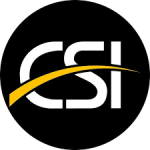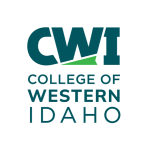
The sterile processing technicians working behind the scenes are the heroes who support the frontline medical staff, such as doctors, nurses, and other professionals.
Sterile processing technicians are vital for surgery, operations, dentistry, and other procedures.
In this role, they safeguard the environment, ensuring that equipment is sterile and safe.
A sterile processing technician, which some call a central service technician, performs a vital role in a healthcare team by sterilizing medical equipment, supplies, tools, and medical areas, providing the sterilization and safety of everything utilized for medical practice.
They’re responsible for cleaning, preparing, and sterilizing medical instruments and equipment for surgeries and other procedures, ensuring all tools and equipment work well, and keeping inventory of supplies.
They can work in hospitals, surgical centers, dental offices, and other healthcare facilities in this capacity.
Their expertise is crucial in maintaining a sterile environment and preventing patient infections.
Steps to Become a Sterile Processing Technician in Idaho
Candidates in Idaho, the Gem State, have a clear and brilliant strategy for training and gaining experience as sterile processing technicians.
To begin, complete an accredited training program that provides candidates with the knowledge and skills needed to work as a sterile processing technician.
The next step is gaining practical experience in the field, which is a great training tool.
Typically, this is gained through a clinical rotation or an internship.
The next step is the certification exam.
Through experience, education, and expertise, candidates are prepared to sit their certification exam, demonstrating skills and expertise in sterile processing.
Licensing Requirements to Become a Sterile Processing Technician in Idaho
Currently, Idaho doesn’t mandate regulations regarding sterile processing technicians.
However, in the field, many employers are actively looking for employees with that special something: training and certification.
Candidates need at least a high school diploma or equivalent.
However, many employers require the completion of a sterile processing technician training program.
Certification
While certification isn’t mandatory in Idaho, it’s seriously recommended, as it supports confidence and career prospects.
Certifying bodies include the Certification Board for Sterile Processing and Distribution (CBSPD), which offers exams to earn the Certified Sterile Processing Technician (CSPT).
Legal Requirements: Idaho mandates that people working in sterile processing undergo a criminal background check to ensure patient security and safety in healthcare facilities.
Sterile Processing Technician Programs in Idaho

College of Southern Idaho
College of Southern Idaho is a public community college in Twin Falls, Idaho.
Surgical / Central Sterile Processing Technology Program
Students learn how to be part of the medical team through this brief training program, in which students learn disinfecting and sterilization techniques, teamwork, professionalism, medical language, and inventory management.
After completing the program and completing 400 hours of work experience, students can take the IAACSMM National certification exam.
Degrees and Certificates
Surgical/Central Sterile Processing Technology, Basic Technical Certificate
Contact Information
- Address: 315 Falls Ave, Twin Falls, ID 83301
- Phone: 208-733-9554
- Website: https://www.csi.edu/

College of Western Idaho
The Surgical Technology Program at the College of Western Idaho (CWI) prepares candidates for their critical roles in the medical field by providing the essential knowledge and skills to succeed.
The program unites classroom learning and hands-on clinical experience, offering extensive training to candidates specializing in surgical technology.
The goal is to prepare candidates for a vital role in the medical team by equipping them with knowledge of sterile processing, surgical instruments, and patient care procedures.
Students can experience a hands-on clinical experience, combined with classroom teaching, instruction from experienced healthcare professionals, and learning and experiencing real-world scenarios.
Through comprehensive training, students have the opportunity to prepare for a rewarding career as a surgical technologist.
The Surgical Technology Program at CWI provides a concentrated training route for candidates interested in working in the critical medical environment.
By integrating theoretical learning and practical experience, the program ensures students are prepared to join surgical teams and aid in patient care!
Their work reduces the risk of microbial exposure by maintaining a safe and sterilized environment and processes for equipment.
This training program supports students in sterilization techniques and inventory management skills, plus the role of interpersonal communication, professionalism, teamwork, and medical terminology.
Contact Information
- Address: Administration Building, 6056 Birch Lane, Nampa, ID 83687
- Mailing Address: MS 1000, P.O. Box 3010, Nampa ID 83653
- Phone: 208-732-6310
- Website: https://cwi.edu/

North Idaho College
Experience a public community college in Coeur d’Alene, Idaho.
North Idaho College offers a program related to sterile processing within its Associate of Applied Science in Surgical Technology.
The program was created to teach the theoretical skills and essential knowledge for candidates to gain an entry-level career as a surgical technologist, a role closely related to sterile processing.
Sterile Processing (STER)
STER-103 Foundations of Sterile Processing
5 Credits. Lecture: 4 hours weekly, Lab: 3 hours weekly.
Offering: Fall and Spring only, even years
This course highlights the roles and responsibilities of the sterile processing technician in the workplace.
Coursework consists of detailed processes for sterilizing instruments and supplies in the healthcare environment and microbiology, anatomy, and medical terminology.
Candidates will complete all classes and paperwork for each hospital clinical site, including mandatory blood-borne pathogens and HIPAA education.
Students gain hands-on experience as sterile processing technicians in laboratory environments.
Corequisites: STER-104
STER-104 Sterile Processing Clinical Experience
9 Credits: Internship: 27 hours per week.
Offering: Fall and Spring only, even years
This course provides supervised experience in sterile processing techniques in a clinical facility.
Candidates learn first-hand the different operations in a sterile processing department, such as quality assurance, inventory management, and preparing, storing, and distributing instruments, supplies, and equipment.
After completing coursework, candidates demonstrate their skills in sterile processing techniques.
To take the certification exam successfully, candidates require 400 hours of clinical experience.
Contact Information
- Address: 1000 W. Garden Ave. Coeur d’Alene, ID 83814
- Phone: 208-769-3300
- Website: https://www.nic.edu

Boise State University
The University offers an online sterile processing technician certification course that covers the essential duties of a sterile processing technician.
This program works well for students seeking a balance between work, life, and education.
Advantages include gaining hands-on experience through applying skills in a healthcare setting and prepping for their (CRCST) certification exam.
Contact Information
- Phone: 208-426-5921
- Website: https://www.boisestate.edu/online/online-degrees/certificate-programs/
4 Sterile Processing Technician Schools in Idaho
| School Name | Address |
|---|---|
| College of Southern Idaho | 315 Falls Ave, Twin Falls, ID 83301 |
| College of Western Idaho | Administration Building, 6056 Birch Lane, Nampa, ID 83687 |
| North Idaho College | 1000 W. Garden Ave. Coeur d'Alene, ID 83814 |
| Boise State University | 1910 W University Dr, Boise, ID 83725, USA |
Salary
The average compensation for sterile processing technicians in Idaho in 2024 is $36,985.
While the annual wages can range from $45,967 to $29,511, the typical range is between $33,073 and $41,687, and factors contribute to education, certifications, experience, and additional skills.
Annual Salary Range:Average Salary of Sterile Processing Technicians in Idaho
| City Name | Salary |
|---|---|
| Bloomington | $35,280 |
| Carey | $33,853 |
| Dubois | $35,439 |
| Coeur D Alene | $40,116 |
| Kingston | $40,116 |
| Moore | $34,646 |
| Harrison | $40,116 |
| Pocatello | $34,448 |
| Nampa | $36,469 |
| Silverton | $40,116 |
Regional Salary
| Region | Employed | Avg. Annual Salary | Avg. Hourly Pay | Top 10% Annual Salary | Bottom 10% Annual Salary |
|---|---|---|---|---|---|
| Boise City, ID | 240 | $46,820 | $22.51 | $65,600 | $34,320 |
| Idaho Falls, ID | 90 | $43,820 | $21.07 | $91,820 | $28,300 |
| Lewiston, ID-WA | 40 | $38,380 | $18.45 | $45,100 | $31,870 |
| Twin Falls, ID | 40 | - NA - | - NA - | - NA - | - NA - |
* Employment conditions in your area may vary.
Frequently Asked Questions
Is it difficult to become a sterile processing tech in Idaho?
Becoming a sterile processing technician in Idaho is pretty straightforward, and the state has many opportunities for this vital healthcare role.
How’s the job outlook for sterile processing technicians in Idaho?
The U.S. Bureau of Labor Statistics predicts that career opportunities for sterile processing technicians are expected to grow by 6% between 2020 and 2030, the average for all occupations.
People talk about certification for working as a surgical tech. How do I get certified?
There are training programs to prepare candidates for the certification exam.
Opportunities include becoming a Certified Surgical Technologist (CST), Certified Registered Central Service Technician (CRCST), or Certified Sterile Processing and Distribution Technician (CSPDT), which are the main certifications.
This page is also available in Spanish.





